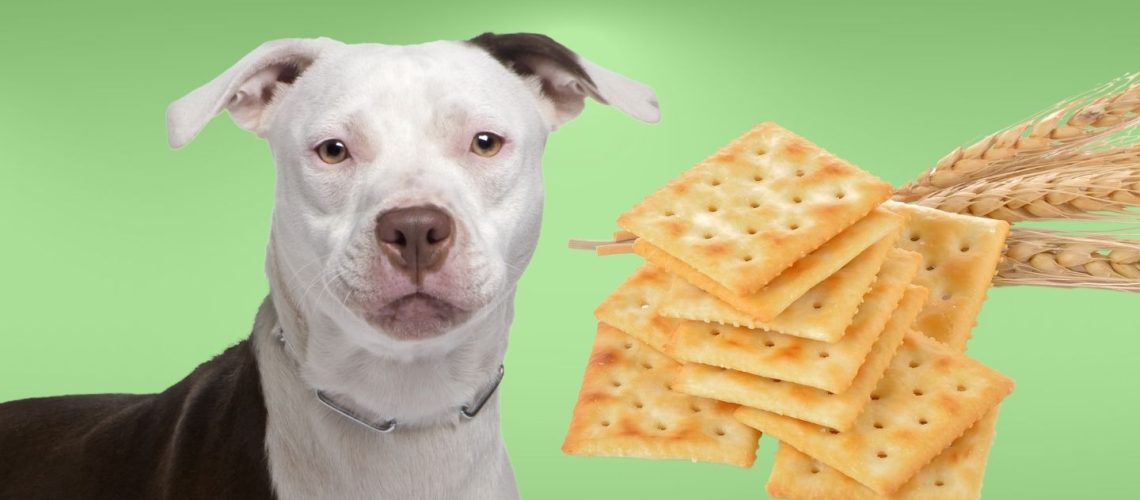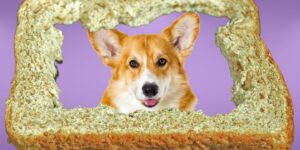The short answer is yes, dogs can eat saltine crackers in moderation. However, there are a few things to consider before feeding your dog saltine crackers, such as their nutritional value, potential risks, and portion size.
Introduction
What are saltine crackers?
Saltine crackers are thin, crisp crackers made from simple, refined ingredients, including flour, yeast, salt, and shortening. They are commonly used as a quick snack or paired with soups, salads, or cheeses.
Why people might consider giving saltine crackers to their dogs
Dog owners may consider giving saltine crackers to their pets because they are convenient, inexpensive, and seemingly harmless. However, it is important to understand the nutritional value and potential risks associated with feeding saltine crackers to dogs.
Nutritional Value for Dogs
Comparison to other dog treats
Saltine crackers do not provide much nutritional value for dogs, as they are low in protein, fat, and fiber. In comparison to other dog treats, saltine crackers lack essential nutrients and are primarily comprised of empty calories.
The role of treats in a dog's diet
Treats should make up no more than 10% of your dog's daily caloric intake, with the remaining 90% coming from a balanced dog food diet. As saltine crackers offer little nutritional value, they should only be offered as an occasional treat and not as a daily part of your dog's diet.
Risks and Precautions
Salt content in saltine crackers
The most significant concern with saltine crackers is their high salt content. Excessive salt intake can lead to health problems in dogs, such as excessive thirst and urination or even sodium ion poisoning.
Sodium ion poisoning in dogs
Causes
Sodium ion poisoning occurs when a dog consumes too much salt, leading to an imbalance in their electrolyte levels.
Symptoms
Some symptoms of sodium ion poisoning include vomiting, diarrhea, lethargy, and in severe cases, seizures and death.
Treatment
If your dog shows signs of sodium ion poisoning, consult a veterinarian immediately for proper treatment.
Other potential risks
Allergies or sensitivities
Some dogs may have allergies or sensitivities to the ingredients in saltine crackers. If your dog experiences any adverse reactions, such as itching or diarrhea, discontinue feeding them the crackers.
Choking hazard
Saltine crackers can pose a choking hazard, especially for smaller dogs or those that have difficulty chewing. Always supervise your dog while they are eating to prevent choking incidents.
Alternatives to Saltine Crackers
Low-sodium dog treats
There are several commercially available low-sodium dog treats that provide a healthier alternative to saltine crackers. Look for treats made with wholesome, natural ingredients and minimal added salt.
Homemade dog treats
Consider making homemade dog treats using dog-safe ingredients to control the quality and nutritional value of the treats. Many recipes are available online, catering to various dietary needs and preferences.
Healthy human foods suitable for dogs
There are several human foods that are safe and healthy for dogs, such as lean meats, vegetables, and fruits. Always research a food item before giving it to your dog to ensure its safety and suitability.
How to Safely Introduce Saltine Crackers to Your Dog's Diet
Start with a small amount
If you decide to give your dog saltine crackers, start with a small amount and monitor their reaction before giving them more.
Monitor your dog's reaction
Watch for any signs of digestive upset, allergic reactions, or excessive thirst and urination.
Adjust the portion size accordingly
If your dog shows no adverse reactions, limit the portion size to a few small crackers as an occasional treat and not a regular part of their diet.
When to Consult a Veterinarian
Signs that your dog may be experiencing adverse effects
If your dog displays symptoms of sodium ion poisoning, an allergic reaction, or any other concerning health issues after consuming saltine crackers, consult a veterinarian immediately.
Ongoing dietary concerns or questions
For ongoing dietary concerns, questions, or guidance about your dog's individual nutritional needs, consult your veterinarian for expert advice.
Conclusion
In conclusion, dogs can eat saltine crackers, but they should only be given in moderation and as an occasional treat. It is important to monitor your dog's intake of saltine crackers and be aware of the potential risks and precautions. Always prioritize your dog's health and well-being, and consult with your veterinarian before introducing new foods into their diet.











